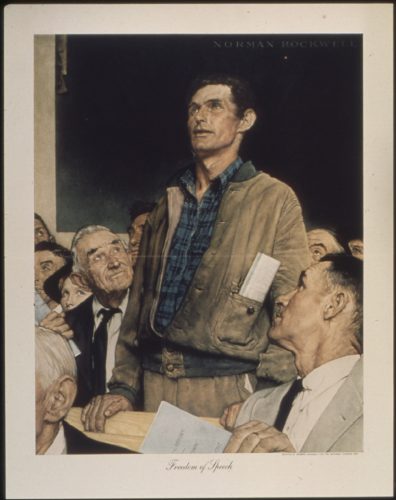I can’t really speak to the matter of general officers from extensive personal experience with the rank; throughout my military career I was mostly in places removed from direct personal contact. A merciful deity, to quote the rabbi from “Fiddler on the Roof” kept the general ranks kept them far, far from us, although a SAC one-star did show up one day at EBS-Zaragoza, unannounced and unheralded. It was lunchtime, practically everyone save the radio and TV op on duty had left the building. I was sitting in my office, peacefully adding another layer of much-needed polish to my shoes, when a flight-suited guy appeared in the doorway and cheerily asked, “When you’re done with yours, can you do mine?” He was a youngish-looking, personable guy, and it took me at least five seconds to grok the single star that designated his rank. He introduced himself, Brigadier General Something-or-other. said he was visiting for a readiness inspection of the SAC unit. He just thought he would mosey around and drop in to visit some of the other activities on base which supported his people so well … and could he have a tour of our broadcast facility?
Well, duh like I could say ‘no, general, sir’. He got the brief informal nickel tour, conducted by yours truly, introduced to the few of our staffers who weren’t at lunch, and the other senior NCO, the maintenance chief, who hissed at me: “Why didn’t you tell us there was a one-star on the ground? We should have been prepared!” and I hissed back that I hadn’t had a chance to tell anyone anything, said one-star just appeared. It was likely, I added, that this general was probably much more knowledgeable about what was really going on in the activities that he visited, because of his practice of just casually dropping by … rather than doing the formal, pre-announced official inspection visit.
But to most junior and med-ranked enlisted, general officers are like saints to Catholics we know of them, about them, recognize their attributes, and experience the effects of their pronouncements and dictates.
